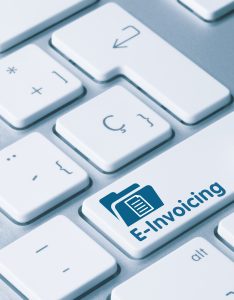On 29th of September 2022 The Court of Justice of the European Union has handed down a ruling with a signature C-235/21, which could have a significant impact on the fundamental importance of the VAT invoice in business transactions and leave taxpayers in ongoing uncertainty regarding the qualification of non-tax documents. According to the ruling, in exceptional cases, an agreement between contracting parties may be considered as a VAT invoice.
The essence of the case – the facts
A company that is a Slovenian taxpayer sold a property.
Subsequently, it entered into a sale-leaseback agreement with its purchaser, which showed the amount of VAT to be paid.
The leasing company didn’t issue an invoice to the company, regardless the Slovenian tax authorities concluded that VAT on the transaction should be paid.
The dispute between the taxpayer and the tax office went to the Slovenian court, which referred a question to the CJEU for a preliminary ruling on the effects of the contract concluded and, most importantly, the recognition of such a contract as a VAT invoice too under Directive 2006/112.
Prevention of “empty invoices”
Under the provisions of the aforementioned Directive, anyone who has shown VAT on an invoice is required to pay it to the tax office, in order to prevent taxpayers from issuing so-called ’empty invoices’.
Obligatory details of an invoice
Both the VAT Directive and the Polish VAT Act indicate which elements a document must have in order to be considered as a VAT invoice.
According to the current wording of Article 106e of the Polish Value Added Tax Act, an invoice should contain, in particular:
- the date of issue;
- an individual number;
- data of the issuer and data of the buyer, their addresses and VAT ID numbers;
- the date on which the supply of goods or services was completed or the date on which the payment was received, if this date is different from the date of issue of the invoice;
- the nature of the goods or services;
- the quantity of goods or services provided;
- the net unit price and the total net price;
- the amount of discounts or rebates granted;
- the tax rate;
- the amount of tax calculated from the total net price;
- the total amount due (gross amount).
The leasing company’s argumentation
The leasing company argued that the concluded leasing contract couldn’t be treated as a VAT invoice, so the obligation to pay VAT that arose under the contract didn’t arise.
CJEU’s position
However, the CJEU ruled that the tax authorities don’t have the right to refuse to deduct VAT if they have information on the basis of which it will be possible to examine whether the material prerequisites entitling the tax to be deducted existed.
Therefore, if the parties concluded a contract which contained data allowing for the determination of the existence of the right to deduct, even the lack of indication of the VAT rate in the contract won’t stand in the way of anyone, as long as from the content of the contract it will be possible to deduce the service in question and thus derive the appropriate VAT rate.
Summary
The CJEU ruling undoubtedly creates uncertainty for many taxpayers as to what can actually be considered a VAT invoice.
The recognition of a non-tax document as a VAT invoice also raises a number of practical issues as to how such a document should be included in the SAF-T file or how it should be corrected.
I look forward to seeing the first such cases in the Polish tax legislation and hope that the application of this ruling in practice will be smooth for taxpayers.
Author:
Aleksandra Philips, LL.B. VAT-specialist






